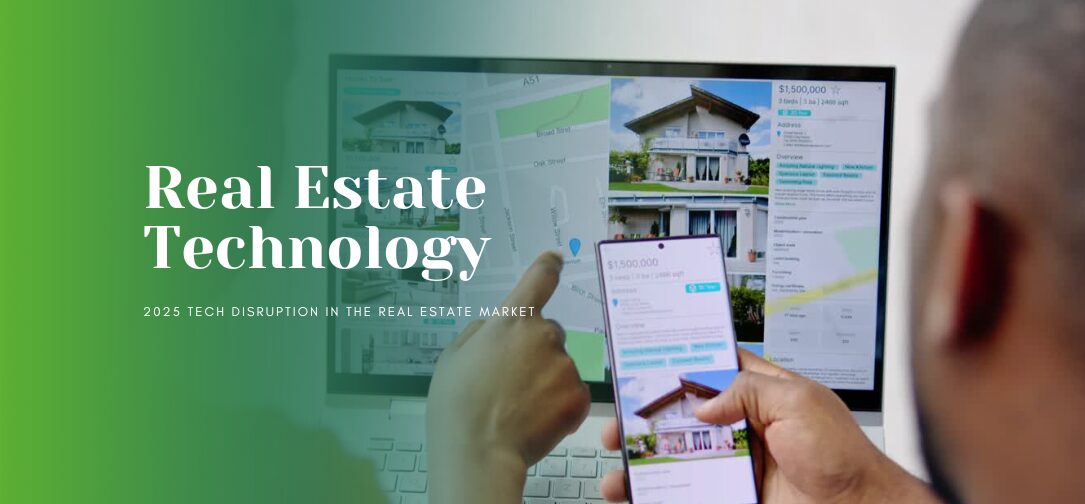Bricks and mortar might be traditional, dependable, and solid, but the real estate industry is shifting on its axis right now, and technology is driving the change. From valuations and viewings to the very construction methods themselves, there’s a not-so-quiet revolution going on in the real estate sector.
Artificial Intelligence has impacted almost every industry, and property sales and rentals are no different. While it’s still essential to get a proper valuation when you buy or sell your home, using these tools in conjunction with an estate agent may still help you navigate the nuance of listing your property.
Here are a few of the most innovative tech being used in the real estate markets globally.
Chatbots Doing the Hard Sell
AI is also an integral part of the sales process. It’s now considered normal for chatbots like PropertyJinni to help homeowners make early decisions and set appointments before handing over to a human to close the deal. Behind the scenes, machine learning models have analyzed, sorted, and discarded hundreds of potential properties to provide a tailor-made list for each buyer.
In the commercial property management sector, simply monitoring wifi usage with AI tools has helped Colliers International monitor office occupancy. That has helped companies make the best use of less space and make substantial savings.
Blockchain Saves Time and Money
2025 could also be the year that blockchain technology takes over the real estate sales process. The blockchain is an immutable ledger, the less glamorous back end of the cryptocurrency world, but it has found a new lease of life in the supply chain industry, healthcare, and real estate.
Smart contracts can help automate, expedite, and smooth out the whole house purchase process. They can also share information with the right people without individual approvals. That makes the whole sales process faster and cheaper.
The UK Land Registry has experimented with a blockchain-based records system, but Britain is lagging behind Dubai and Georgia, which already have blockchain systems. Here, the private sector is leading the charge.
British company Coadjute has attracted investment from Lloyds Banking Group, Natwest, and Rightmove. Its mission is to connect estate agents, conveyancers, lenders, and brokers by seamlessly sharing updates and documents. This could cut the average sale time of five months in half and slash fees.
Fractional Ownership the Future?
The blockchain opens up new opportunities with fractional ownership, too, which can work for investors in resort hotels and first-time buyers struggling with the spiraling cost of home ownership.
Tokenization splits a property into digital shares, which could simplify co-ownership. With property prices in the UK now 7.7 times the average income, according to the Office of National Statistics, fractional ownership could help younger buyers priced out of the market to get on to the property ladder.
Platforms like Cahootz provide investors the chance to buy fractions of multiple properties, spreading their investment.
VR and augmented reality tours of new homes are almost a must-have. New research by Giraffe360 suggests homes with virtual tours can sell for up to 5.6% more. Other studies have shown that listings with virtual tours get 87% more views and sell 31% faster.
Smart Homes Turning into Smart Business
There’s an increasing demand for high-tech homes as well, with energy-efficient smart homes attracting a premium price. According to the Connected Devices Alliance, smart thermostats, integrated heating and cooling systems, and automated lighting can all combine to reduce energy consumption by up to 30%.
Samsung’s Smart Home Buyer’s Index claimed buyers will pay 6.5% more for a smart home, with energy efficiency being a key factor.
After decades of promise, we’re finally seeing revolutions in the actual construction methods of new homes, too, with 3D-printed homes finally turning into a reality. Building for Humanity has set to work on a £6 million development of 46 eco-friendly homes in Accrington, Lancashire. The Charter Street project aims to cut construction time and costs by 25% with 3D printing.
Tiny homes and even flatpack homes for sale online on sites like Amazon, together with 3D printed homes that promise to slash construction costs and potentially hit house prices across the board, are changing the way we think about real estate. These are exciting times, as technology finally catches up with an old-school industry and rocks it to the foundations.































